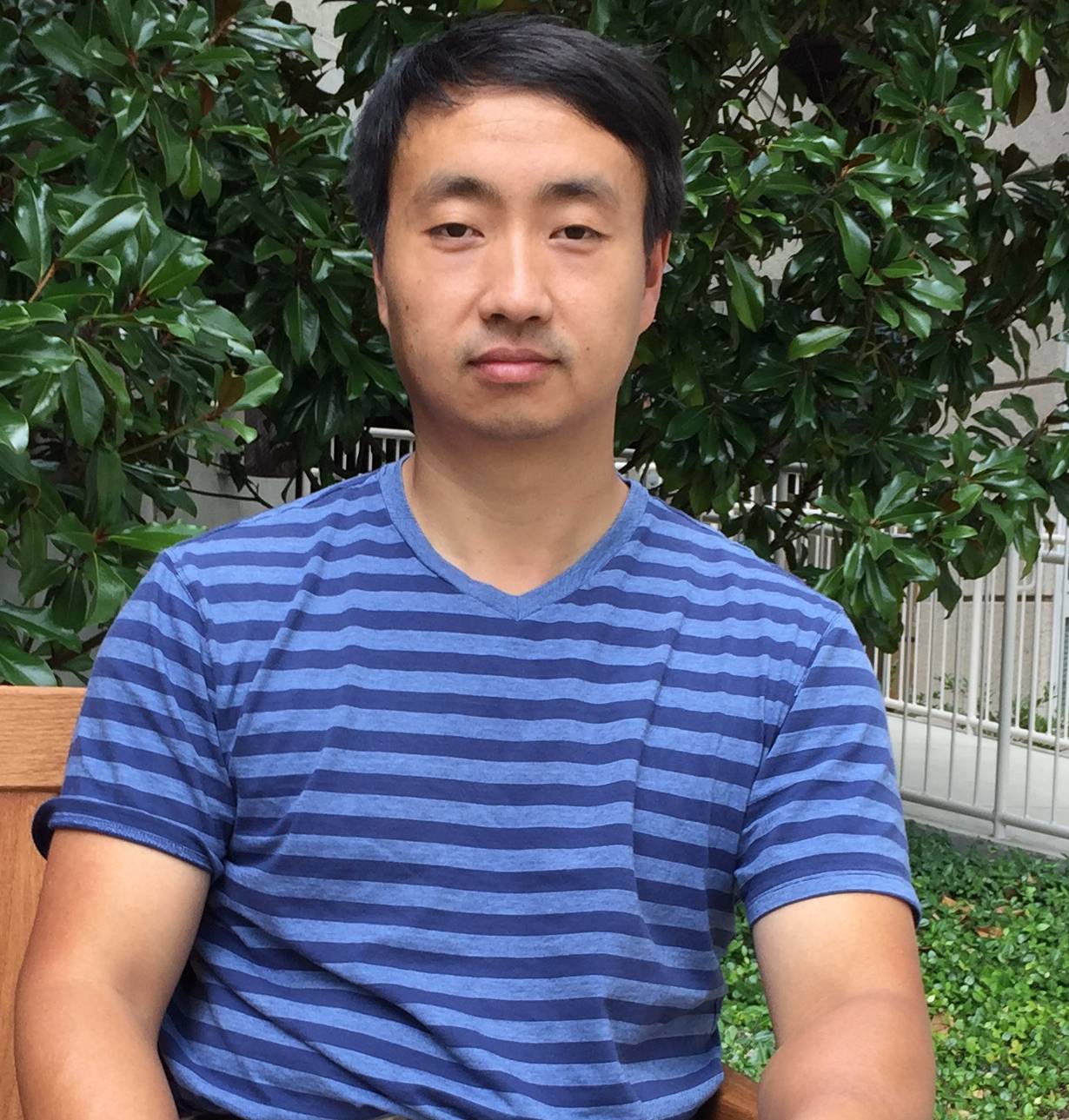- Augusta University
- Centers & Institutes
- Center for Biotechnology & Genomic Medicine
- Richard McIndoe Lab
CBGM - Dr. Richard McIndoe Lab

Richard McIndoe, PhD
- Professor
- Director, Center for Biotechnology & Genomic Medicine
- Regents Professor, Obstetrics & Gynecology
- GRA Distinguished Scientist
- Medical College of Georgia
Education
Ph.D., Immunology and Molecular Pathology
University of Florida
B.S., Microbiology and Cell Science
University of Florida
Research Interests
The research interests of the McIndoe laboratory are in bioinformatics and computational biology. Dr. McIndoe’s lab focuses on two broad themes of scientific inquiry. The first is the management and coordination of NIH funded multicenter consortia as Data Coordinating Centers. These projects deal with data integration and management of large scale projects in Mouse Metabolism and Diabetic Complications. The second focus is in algorithm development for the analysis of high-throughput molecular data to provide biological insight into basic biology and disease processes.
Research Projects
Development of Molecular Networks from High Throughput Data
This area of my lab works on developing molecular networks from both microarray and proteomics data to assess the global molecular signatures that reflect disease states. Projects include looking at literature mining approaches as well as microarray data for both mRNA and miRNA.
Diabetic Complications Consortium
Overall Goals: Diabetic complications consortium (DiaComp) will bring together a number of projects representing a diverse set of disciplines and technologies with the goal of improving or creating mouse models of human diabetes complications. Read more ...
Mouse Metabolic Phenotyping Centers
Overall Goals: My laboratory is the Coordinating and Bioinformatics Unit for the MMPC.The mission of the MMPC is to advance medical and biological research by providing the scientific community with standardized, high quality metabolic and physiologic phenotyping services for mouse models of diabetes, diabetic complications, obesity and related disorders. Read more ...
PANDA The Prospective Assessment of Newborns for Diabetes Autoimmunity
Overall Goals: This project is a new born screening program for Type I Diabetes. Individuals are
screened at birth for their risk of developing type 1 diabetes and subsequently monitored
semi-annually for molecular markers of the diseases. Read More ...
TEDDY The Environmental Determinants of Diabetes in the Young
Overall Goals: This project is a new born screening program for Type I Diabetes. Individuals are screened at birth for their risk of developing type 1 diabetes and subsequently monitored semi-annually for molecular markers of the diseases. Read More ...
Genetic control of autoimmune exocrinopathy in NOD mice
Overall gaols: This project is to investigate the molecular and immunological mechanism underlying exocrinopathies in NOD mice.
Development of Microarray-based Biomarkers for Type 1 Daibetes
Overall gaols: This project is to develop a biomarkers for the prediction of type 1 diabetes pathogenesis using microarrays.
Publications
Molecular pathways altered by insulin b9-23 immunization.
Eckenrode SE, Ruan QG, Collins CD, Yang P, McIndoe RA, Muir A, She JX
CBGM, Medical College of Georgia, 1120 15th Street, CA-4124, Augusta, GA 30912, USA.
Microarray experimental design: power and sample size considerations.
Yang MC, Yang JJ, McIndoe RA, She JX
Department of Statistics, University of Florida, Gainesville, Florida 32611, USA.
yang@stat.ufl.edu
Gene expression profiling during all-trans retinoic acid-induced cell differentiation
of acute promyelocytic leukemia cells.
Yang L, Zhao H, Li SW, Ahrens K, Collins C, Eckenrode S, Ruan QG, McIndoe RA, She
JX
Department of Pathology, Immunology, and Laboratory Medicine, University of Florida
College of Medicine, Gainesville, Florida 32610, USA. yanglj@pathology.ufl.edu
caBIONet--A .NET wrapper to access and process genomic data stored at the National
Cancer Institute's Center for Bioinformatics databases.
Kraj P, McIndoe RA
Institute of Molecular Medicine and Genetics, Medical College of Georgia, Augusta,
GA 30912, USA.
Alterations of renal phenotype and gene expression profiles due to protein overload
in NOD-related mouse strains.
Wilson KH, McIndoe RA, Eckenrode S, Morel L, Agarwal A, Croker BP, She JX
Center for Biotechnology and Genomic Medicine, Medical College of Georgia, PV6B108,
Augusta, GA 30912-2400, USA. Karen.wilson@kmf.gu.se
Gene expression profiles define a key checkpoint for type 1 diabetes in NOD mice.
Eckenrode SE, Ruan Q, Yang P, Zheng W, McIndoe RA, She JX
Center for Biotechnology and Genomic Medicine, Medical College of Georgia, Augusta,
Georgia, USA.
Microarray analysis of gene expression in the kidneys of new- and post-onset diabetic
NOD mice.
Wilson KH, Eckenrode SE, Li QZ, Ruan QG, Yang P, Shi JD, Davoodi-Semiromi A, McIndoe
RA, Croker BP, She JX
Center for Biotechnology and Genomic Medicine, Medical College of Georgia, Augusta,
Georgia, USA.
Early pathogenic events associated with Sjögren's syndrome (SjS)-like disease of the
NOD mouse using microarray analysis.
Killedar SY, Eckenrode SE, McIndoe RA, She JX, Nguyen CQ, Peck AB, Cha SR, Cha S
Department of Oral Biology, College of Dentistry, University of Florida, Gainesville,
FL 32610, USA.
The application of genomic and proteomic technologies in predictive, preventive and
personalized medicine.
Collins CD, Purohit S, Podolsky RH, Zhao HS, Schatz D, Eckenrode SE, Yang P, Hopkins
D, Muir A, Hoffman M, McIndoe RA, Rewers M, She JX
Center for Biotechnology and Genomic Medicine, Medical College of Georgia, 1120 15th
Street, CA4124, Augusta, GA 30912-2400, United States.
MADGE: scalable distributed data management software for cDNA microarrays.
McIndoe RA, Lanzen A, Hurtz K
Department of Pathology, Immunology and Laboratory Medicine, University of Florida,
Gainesville 32610, USA. rmcindoe@mail.mcg.edu
Recipes for creating animal models of diabetic cardiovascular disease.
Hsueh W, Abel ED, Breslow JL, Maeda N, Davis RC, Fisher EA, Dansky H, McClain DA,
McIndoe R, Wassef MK, Rabadán-Diehl C, Goldberg IJ
Division of Endocrinology, Diabetes, and Hypertension, The David Geffen School of
Medicine, University of California, Los Angeles, CA, USA.
A high-throughput population screening system for the estimation of genetic risk for
type 1 diabetes: an application for the TEDDY (the Environmental Determinants of Diabetes
in the Young) study.
Kiviniemi M, Hermann R, Nurmi J, Ziegler AG, Knip M, Simell O, Veijola R, Lövgren
T, Ilonen J, The TEDDY Study Group
Immunogenetics Laboratory and MediCity Research Laboratory, University of Turku, Finland.
minna.kiviniemi@utu.fi
The Environmental Determinants of Diabetes in the Young (TEDDY) study: study design.
The TEDDY Study Group
Various
Post-Doctoral Fellow

Graduate Students
Current

Class: 2022
Project: Building AI for Personalized Cancer Medicine
Graduated

Jiaqi Li
Graduated: Spring 2021
Project: Bio-Information model of cancer related to drug resistance.

Sarabjot Pabla
Graduated: Fall 2016
Project: Development of strategies to evaluate the genomic methylation patterns in disease.

Simarjot Pabla
Graduated: Spring 2016
Project: Assessment of molecular networks in autoimmune diseases.

Ashok Sharma
Graduated: Spring 2011
Project: An Integrative Genomics Approach Identifies Key Pathways and MicroRNA Networks Associated with Leptin-Mediated Weight Loss.
Research Analyst
